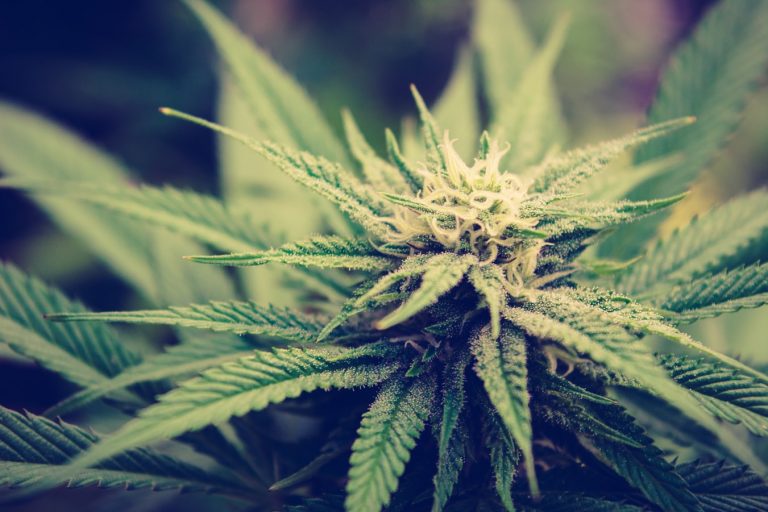California’s passage of Proposition 64 has led to some monumental changes in the landscape of business; not just as it pertains to the relationship between the marijuana industry and other industries, but also as it relates to how employers navigate the use of the newly legalized plant among their workforce.
Marijuana still remains an illegal Schedule 1 substance based on the Federal Controlled Substance Act. Due to the fact that the substance is still subject to federal prosecution, employers are concerned that the “Control, Regulate, and Tax Adult Use of Marijuana Act” known as Proposition 64 will impact the business owner’s ability to maintain a drug free workplace, particularly those businesses that rely on federal contracts and other government funding.
Although California has passed Proposition 64 which legalized the use of marijuana, there is still a great deal of skepticism as it concerns THC or Tetrahydrocannabinol (The chemical in marijuana that leaves the user with a “high” feeling). Due to the intoxicating properties of the chemical, employers have concerns about marijuana products having a detrimental effect on the performance and overall safety of their workforce. The hesitancy to use a product which contains high amounts of THC is not only reflected through the concerns of employers but has also caused many would-be users to experiment with products containing little or no THC, but high levels of the “non-psychedelic” chemical in marijuana known as CBD or Cannabidiol.
There has been substantial research that shows CBD to be effective in dealing with certain ailments related to stress, inflammation, and anxiety. The human body has an endocannabinoid system (ECS) that receives and translates signals from cannabinoids. It produces some cannabinoids of its own, which are called endocannabinoids. The ECS helps to regulate functions such as sleep, immune-system responses, and pain. CBD and CBD oil has long been touted to decrease pain from arthritis, provide relief for people suffering with multiple sclerosis, and other types of chronic pain.
Many doctors and physicians in California and across the nation have begun recommending CBD to their patients as an alternative to over the counter and prescription drugs; due to the existence of proposition 64, there is little or no monitoring of the levels of THC that might be present in the CBD product that has been recommended. This has left employers concerned, and rightly so, as to whether or not they should allow their employees to utilize CBD as a remedy to their ailments and risk jeopardizing their status as a drug-free workplace.
There are many reasons that an employer would want to implement a Drug-Free Workplace Program:
- Reduces workplace injuries (1 in 6 workplace deaths and 1 in 4 workplace injuries involves drug or alcohol use)
- Decreases the amount of workers’ compensation claims
- Improves productivity
- Helps to establish a healthy and safe work environment
- Decreases workers’ compensation insurance premiums
- Possible federal government contracts
So, what should employers do?
Drug testing by an employer is still permitted as it pertains to marijuana and more specifically, THC; even in the state of California in the wake of proposition 64. There are, however, “legally sensitive” areas that employers must be aware of and adhere to when implementing a drug testing policy:
- Safeguard employees’ confidentiality
- Clearly communicate the drug-free policy to all employees
- Establish procedures to investigate alleged violations
- Ensure quality control and confirmation of positive tests
- Conform to union contracts if/when applicable
The most important thing that an employer can do when implementing a drug-free workplace policy, is to ensure adequate communication of said policy to ALL employees. It is also important that any updates to the policy are expressly communicated to both new and existing employees. The policy must also be uniformly and CONSISTENTLY applied.
Most drug testing is done on one or more of the following bases:
- Pre-employment/Pre-duty
- Random
- Reasonable Suspicion
- Post-accident
- Return-to-duty
To sum it up, society as a whole is learning how to navigate the new laws and regulations surrounding marijuana and products associated with it. Business owners are not alone in their search for understanding.
At the end of the day, communication is key.
- Communicate to employees the difference between THC products and CBD products
- Make sure that each employee understands that THC use is prohibited in the workplace (if such policy has been established)
- Individually evaluate each situation if there is suspected use of THC
- Engage in an accommodation analysis for employees who are using CBD products.
As a business owner, it is incumbent upon you to establish a culture for your workplace. Part of that means putting into place policies and procedures that coincide with the productivity, safety, and overall well-being of your workforce. Set expectations and follow through on your plans.




